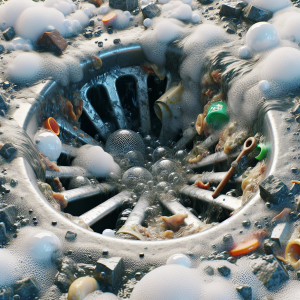Water pressure problems? Why you shouldn’t just ‘go with the flow’
There are few better ways to wake yourself up or shake off a hard day than taking a nice, relaxing, hot shower. But what happens when you step under the stream only to find that there’s barely enough water pressure to rinse out your shampoo?
Water pressure problems often mean more than just a disappointing shower and a bad hair day. If you notice changes to how slow (or fast) the water is flowing from your taps, it’s quite likely that there’s a bigger plumbing problem behind it.
Identifying a water pressure problem
Often the first (and most obvious) sign that there is an issue with your water pressure is a noticeable change in flow at the tap. There are, however, a couple of other clues to look out for:
- It suddenly takes a long time to fill a sink or bathtub.
- Appliances that use water – eg the dishwasher or washing machine – take longer than usual to run through a cycle (because it’s taking longer for them to fill).
- You notice a whistling sound or banging noise when you turn taps on and off.
- A water pressure gauge shows an unusually low or high reading.
NB: The maximum water pressure for Australian homes is around 500kpa (kilopascals) but water pressure rates can vary significantly between homes and locations. You can pick up a water pressure gauge from your local hardware store and check the current water pressure against the level guaranteed by your local council.
First, check in with your council
Occasionally, water pressure problems may originate with your local council’s water supply; their pipes are just as likely as yours to have mineral build up or debris which may result in a decreased flow. If there’s a sudden drop in water pressure, it could also simply be that there are major works going on in your area, so it is always worth checking in with them before you call in your local plumber.
Click here to contact the Victorian Surf Coast Shire Council
Water pressure issues can mean bigger plumbing problems
Once you’ve checked that the problem isn’t simply that you have a lot of water-using appliances running at the same time, or that a tap elsewhere within your home has been left running (it happens!), a call to your local plumbing expert may be in order.
Call a plumber if you suspect the problem might be:
- Faulty fixtures – if the problem is localised to a single tap, there may be an issue with an aerator or strainer, or it may just be past its prime. A simple clean or replacement will quickly fix the issue.
- Leaky pipes – if water is escaping elsewhere in your pipes, it means that less is available at the tap. Check for signs of water damage or drips around taps, inside cupboards, within ceilings and under floors. Also look for pooling water or green patches on the lawn that could mean there is water escaping from a concealed pipe leak.
- Restricted pipes – even a small amount of debris or mineral deposit can impact water pressure. Water jetting may be enough to sort this issue out. However, if your pipes are steel or galvanised, they can corrode internally, blocking flow and reducing water pressure. If that’s the case, re-piping may be the only solution.
- Faulty or badly positioned valves – the valves are the gateways to your home’s water supply. If you’re water supply was recently shut off at the mains for repairs etc, it could be that the valve is still partially closed, causing a dip in the water pressure. A faulty valve could also be to blame for a water pressure change, so it could be worth having these checked over.
- Problems with hot water service – if the pressure problems seem to be temperature-specific (ie only when using the hot tap) your hot water service may be in need of repair or maintenance.
High water pressure is just as bad
Increased water pressure may sound like less of an issue, but it can actually cause plumbing problems over time.
The two main risks of excessive water pressure include:
- Stress on pipes – water under pressure is a real force, so it’s not hard to imagine how too much fast-flowing water could lead to splits, leaks and burst pipes. The constant rattling associated with this issue can also damage the joins that hold your piping together.
- Fixtures and fittings wear out much faster – taps, dishwashers, washing machines, toilets and water heaters can all get a thrashing if they’re trying to deal with more water than they are designed to withstand. Left unchecked, high water pressure may shorten their useful lives or lead to expensive repairs.
To prevent water pressure problems from becoming bigger (read: more expensive) plumbing emergencies, contact Franklin Plumbing. Because we service all locations from Geelong, Torquay, Anglesea and Jan Juc, through to Aireys inlet, Fairhaven and Lorne, no matter where you are on the Surf Coast, you can be sure a Franklin plumber is never far away.


